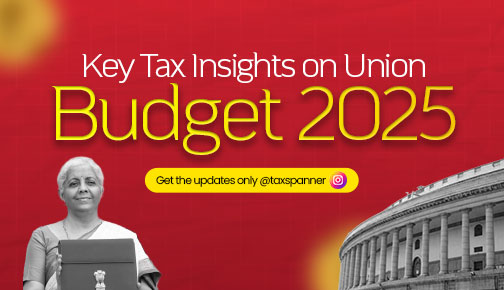Tax Savings Plan- How To Start Saving Taxes Now For Next Year
Personal finance has been gaining significance among youngsters and new job professionals for some time now. Especially when filing their taxes every year, they’re realizing that efficient money management translates to significant tax savings. If you’re prudent with your salary and make smart investment choices, you can save enough to fund your future goals. However, not all are aware of the savings schemes that the government allows you to invest in and reduce tax liability.
In this blog, we will explore the different tax saving schemes that give you long-term returns, so that you can make informed decisions.
What are tax saving schemes?
Tax saving schemes are government-sanctioned financial programs that you can invest in and claim tax deductions. All the benefits provided under these schemes are designed to encourage salaried professionals to buy investment and insurance products.
The Income Tax Act of 1961 allows you to claim tax benefits against your taxable income. These schemes include life insurance policies, Equity-Linked Saving Schemes (ELSS), fixed deposits, savings plans, etc.,
Savings plans specifically allow you to invest periodic premiums and get a lump sum amount upon the plan’s maturity. One major USP for such plans is that all through their term period you can claim tax benefits.
Applicable tax deductions through tax savings plans
The IT Department allows you tax deduction options under different sections. Some of them are listed below:
● Sections 80C, 80CCC, 80CCD: You can claim deductions under this section by investing in life insurance policies, pension and savings plans, and Unit-Linked Insurance Plans (ULIPs). It allows deductions of up to Rs 1, 50,000 per year.
● Section 80D: This section allows deductions against your medical insurance premiums for both yourself and your family.
● Section 24: This covers the home loan interest that you pay for the fiscal year.
● Section 80G: If you donate money to charities or relief funds, you can claim deductions under this section.
Please note: The mentioned deductions are only applicable for old tax regime.
Tax Savings plans that you can invest in
Public Provident Fund (PPF)
PPF is one of the popular and mandatory savings schemes that can save you tax under Section 80C. With a lock-in period of 15 years, it is an ideal option to build a retirement fund since its rate of return is on par with inflation. The upper limit of PPF contribution is set at Rs. 1,50,000. Interestingly, you can withdraw funds from PPF under special circumstances.
5-Year Bank Fixed Deposits (FDs)
FDs are probably the most favorite tax saving scheme of earlier generations. It provides a steady return without any risk. By choosing a five-year FD program, you can increase the maximize the interest rate. The applicable tax deductions are covered under Section 80C of the Income Tax Act, 1961.
Unit Linked Investment Plan (ULIP)
ULIP is a risk-based investment plan that generates returns in the range of 5% - 11%, which is one of the highest when compared to other tax-saving schemes. However, there is no guaranteed returns on this. The revenue that you receive after the program’s maturity is completely tax-free. This scheme comes under Section 80C.
Equity Linked Saving Schemes (ELSS)
ELSS are typically equity-linked mutual funds that tie up your investment for three years. Covered under Section 80C, it can give you returns of up to 15% in the long term. Although there are no guaranteed returns, ELSS is known to produce a high rate of returns. If you choose an ELSS scheme that provides dividends, you will get regular returns even during the lock-in period. The returns and capital gains are tax-free.
National Pension Scheme (NPS)
NPS is essentially a retirement savings plan and the contributions can be deducted under Section 80C, 80CCD(1b), and 80CCD(2) of the Income Tax Act. The returns that NPS offers are pretty volatile and can move anywhere between 3% and 10%. Moreover, the payout is taxable.
National Savings Certificate (NSC)
A government initiative, NSC is an attractive investment option, for which you can claim deductions under Section 80C. The government will set the interest rate for this scheme which is reviewed every quarterly. Currently, it is set at 7.7% and the lock-in period is 5 years.
Senior Citizens Savings Scheme (SCSS)
SCSS is for tax saving scheme designed for senior citizens. Individuals over the age of 60 can make an investment of up to Rs 15 lakh under this scheme. But the interest that you will earn is taxable. With a lock-in period of 5 years, the interest rate for SCSS is decided by the Ministry of Finance and updated regularly. The contributors will receive interest returns every quarter.
Conclusion
Tax planning is an important skill that youngsters must learn so that they can reduce the tax payable. You have options for a number of tax savings plans to invest in. It will not only secure your future by giving long-term returns but also save you money in every year's tax payments.
Although we covered just a few savings schemes in this article, there are many interesting schemes that might suit your preferences. Some of them are the Atal Pension Yojana, Kisan Vikas Patra, Employee Provident Fund (EPF), and Post Office Monthly Income Scheme. Go through the terms and criteria for each of these schemes and pick the ones that best suit you. Or better yet, reach out to our team here at TaxSpanner. We have a dedicated team of tax experts who will assist you with the best tax saving options.
Explore TaxSpanner's wide range of calculators for your tax planning and calculations!
View Tools & Calculators



